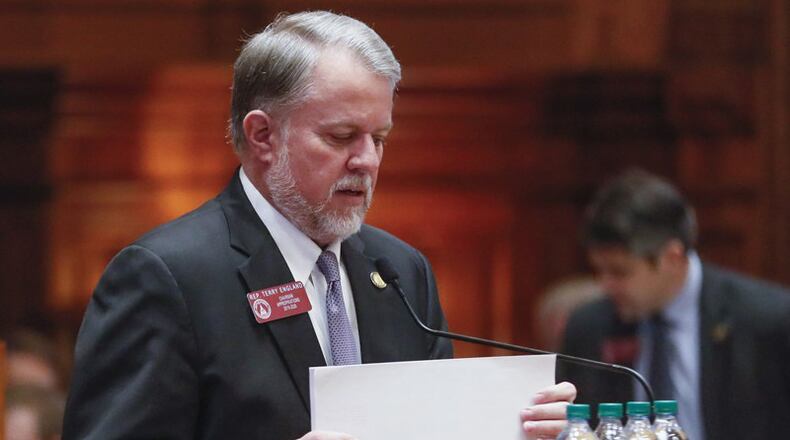Georgia House budget writers heard state agency after agency tell them much the same thing the past few months: Officials couldn’t fill important jobs because of low pay, and annual turnover rates had reached near 100% in some cases.
That played a big role in the House's decision to cut in half Gov. Brian Kemp's proposed $2,000 pay raise for teachers. The chamber took part of the money the state saved and plowed it into pay hikes for state and University System of Georgia employees.
The chamber’s leaders added 2% pay raises for state employees and an additional 2% to 5% in several areas where low salaries have made it difficult to keep staffers, including food safety inspectors, prison and juvenile detention guards, and mental health workers.
That was included in the budget plan the House passed Tuesday for fiscal 2021, which begins July 1.
Kemp’s proposed budget called for a $2,000 pay raise for teachers. That is on top of the $3,000 raise the General Assembly approved for them this school year.
House Appropriations Chairman Terry England, R-Auburn, said Georgia's teachers are already the highest-paid in the Southeast. Besides the merit raise, about 40% of teachers also receive a separate increase for working another year as part of the state salary schedule.
Kemp's request came at the same time he was asking many state agencies to cut 4% from their budgets this year and 6% next year.
So while $350 million was committed to teacher raises, lawmakers were learning in budget hearings that agencies couldn’t fill vacant jobs because of low pay.
Kemp’s budget proposal included $1,000 raises for employees making less than $40,000 a year, but lawmakers said his plan didn’t provide nearly enough money to give everyone that increase.
House budget writers cited turnover rates for thousands of state employees in low-paying jobs who were leaving every year, including:
-- Food service workers in the Department of Behavioral Health and Developmental Disabilities, with salaries starting at $23,000, have a 97% turnover rate.
-- Department of Juvenile Justice correctional officers, with a starting salary of $28,000, have a 95% turnover rate.
-- Prison guards, for whom the starting salary is about $28,000, have a 42% turnover rate.
-- Meat inspectors, who start at $27,000 a year, have a 40.9% turnover rate.
-- Drivers license customer service center employees, with a starting salary of $22,700, have a 39% turnover rate.
-- Caseworkers in the Department of Human Services -- the agency that includes child welfare programs -- start at $36,000 according to the House and have a 36% turnover rate.
-- Veterans Services field officers, with an average salary of $26,500, have a 36% turnover rate.
High turnover is costly because, as is the case for many businesses, it can cost thousands to recruit and train new employees.
The House and Senate have been putting extra money into salaries for some of those jobs in recent years, which is one of the reasons budget writers were unhappy when Kemp ordered the agencies to cut back.
The fact that there is so much turnover made vacant jobs an easy target when budget cutters went looking for money.
Kemp's proposal would cut about 1,200 jobs. England said the House went along with about 80% of the cuts, but it pushed back on eliminating all the vacant positions Kemp proposed for GBI lab scientists, Department of Agriculture food inspectors and public defenders.
England and other budget writers said repeatedly that they respect teachers, and that the halving of Kemp’s proposed pay raise wasn’t a shot at them. They said they just needed to spread the raise money around in hopes of keeping some of the food inspectors, prison guards and driver’s license staffers from leaving, and to make sure the services they deliver are available.
“We understand it is going to be a disappointment to some,” England said. “But we are charged with taking care of all 10.7 million Georgians.”
About the Author
Keep Reading
The Latest
Featured



